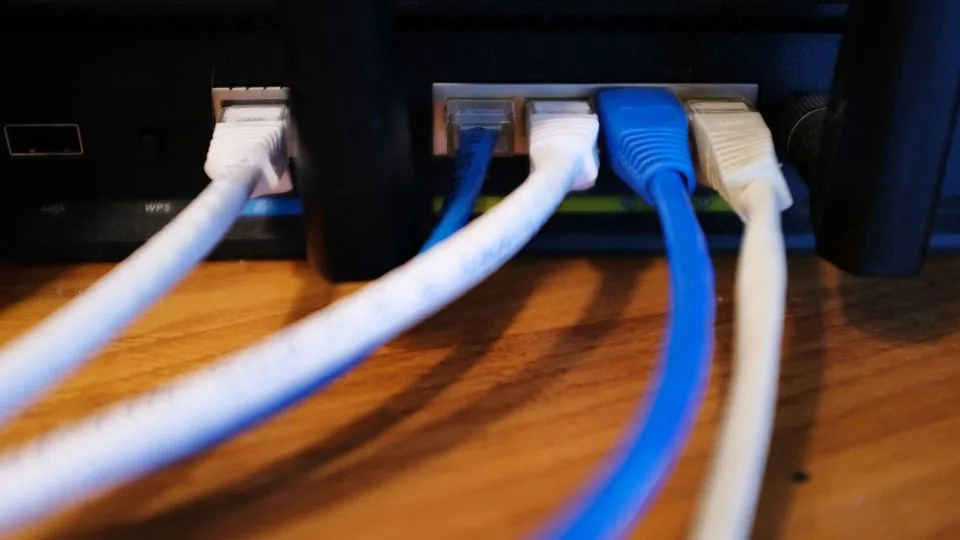Daily Beast
The Unhinged Arguments the Supreme Court Is Fielding on Trump Immunity
Jose Pagliery – March 30, 2024

Retired American generals vehemently say that no, Donald Trump cannot deploy SEAL Team 6 to kill a political rival. Gun groups howl that the United States is turning into Communist China. And a convicted Jan. 6 rioter warns that President Joe Biden could someday get sued over the death of a jogger in Georgia.
These are among the 18 various groups that shared their wisdom with the Supreme Court earlier this month, filing amicus briefs on the same day that Trump told the high court why he should be able to dodge a federal prosecution for trying to overturn the 2020 election on false pretenses.
Department of Justice Special Counsel Jack Smith’s election interference case against Trump has finally reached the nation’s highest judicial authority, which will determine whether the business tycoon can be put on trial. The timing of the nine justices’ eventual decision will determine if the presumptive 2024 Republican presidential nominee is to face trial in court before Election Day in November.
Trump Demands Supreme Court Gift Him ‘Absolute Immunity’
But ahead of oral arguments next month, the Supreme Court is already getting inundated with all kinds of opinions about the main question in the case: whether a former president enjoys immunity for actions made while at the White House.
The Daily Beast reviewed the litany of uninvited legal arguments spanning 599 pages, ranging from breathless reiterations of Trump’s claims to head-turning warnings. Yet all bear the signs of a historic case that could determine the fate of the election, if not American democracy.
The most unusual and unexpected amicus brief comes from three former high-ranking military leaders: Retired Lt. Gen. Keith Kellogg, who served as Trump’s own acting national security adviser; Robert Wilkie, who served as Trump’s Veterans Affairs Department secretary; and retired Lt. Gen. William “Jerry” Boykin, who once led the Army’s elite commandos in Delta Force and Green Berets.
The three former military men felt it necessary to join together and address—in public and at the national level—one of the crazier Trump legal arguments: that Trump’s immunity from criminal prosecution is so beyond question that it would allow him to order the assassination of his political enemies.
“No—the president cannot order SEAL Team Six to assassinate his political rival and have the military carry out such an order,” they clarified, marking the first time former military leadership has ever had to utter such a phrase in court.
The trio went further, pointing out that a Reagan-era executive order already prohibits anyone acting on behalf of the United States government from taking part in an assassination. They dedicated a significant portion of their 18-page court filing to making clear that military officers would be legally justified in refusing to even carry out an official order from their commander-in-chief, an assertion rarely made by military brass—and one that underlies just how stark their concerns are at this point.
“That a person is a political rival of the president is neither a justification nor an excuse for an unlawful killing. And deliberately carrying out an order to murder such a person would be acting upon a premeditated design to kill or an intent to kill. Therefore, any officer engaged in murder on the orders of a president would be subject to the death penalty or life in prison—and the officer would know it,” they wrote.
Meanwhile, the vast majority of the other amici curiae—the so-called “friends of the court” who weighed in to give the Supreme Court their two cents—largely sided with Trump.
Trump Seeks Hush-Money Trial Delay While Supreme Court Weighs Immunity Claim
The right-wing nonprofit America’s Future—which screened a bonkers QAnon Hollywood conspiracy “documentary” at Mar-a-Lago earlier this week—joined forces with Gun Owners of America and similar firearms associations to warn the high court that Smith’s prosecution was making the United States look more like China, Russia, or Zimbabwe.
“The prosecution of President Trump by the Biden Administration has a parallel to a recent event in Communist China,” they wrote, recalling the way former Chinese President Hu Jintao has vanished from public view ever since he was mysteriously escorted out of a public ceremony where he had been sitting next to his successor, Xi Jinping.
The United States is heading down that same route, they warned, lamenting “the explosion of lawfare” aimed at Trump for doing what they deemed totally sensible political speech—an argument that rests, in part, on the gun-toting petitioners’ continued rejection of the 2020 election results. They referenced Trump’s “supposed” defeat in Arizona and Georgia.
The real danger here, though, is that while Trump is currently polling strong, the gun groups concede that “the effect of a conviction may be very different and could determine the outcome of the election.”
But it wasn’t the conglomeration of Second Amendment enthusiasts that made a veiled threat over the high court decision. That came from an Alabama electrical engineer who’s become a political financier.
In his court filing, Shaun McCutcheon describes himself as “a successful, self-made American businessman and constitutional patriot.” And he warned Supreme Court justices that the country’s MAGA loyalists aren’t going to suddenly start trusting the U.S. court system to select fair-minded jurors.
“The former President’s tens of millions of supporters cannot reasonably be expected to accept the typical legal fictions of voir dire under such extreme circumstances,” his lawyer wrote.
McCutcheon assigns malicious intent to the Special Counsel’s decision to indict Trump in the largely liberal District of Columbia—never mind that the U.S. Constitution’s Sixth Amendment ensures that a person will be subjected to a speedy and public trial by an impartial jury drawn from the district where his alleged crime was committed, which in this case was the White House.
“A prosecutor appointed by a partisan presidential appointee of the opposing political party may prosecute a former president in a hand-picked venue deeply hostile to that former president, his beliefs, political expression, and legacy,” his lawyer wrote.
While the Supreme Court received various interpretations of presidential immunity that cast the Special Counsel’s investigations as a severe threat to the functions of the commander-in-chief’s job, the sharpest example came from someone who knows a thing or two about Trump’s insurrection.
Trump Vows to Free Jan. 6 ‘Hostages’ as One of His ‘First Acts’ as President
In his brief, Treniss Evans argued that if Trump can be put on trial for allegedly masterminding a months-long and multi-pronged attack on U.S. democracy, then President Biden could be held personally responsible for the death in February of Georgia nursing student Laken Riley, given that an allegedly undocumented Venezuelan man was arrested for her killing.
“If a President doesn’t have immunity from prosecution for his actions, what prevents Georgia murder victim Laken Riley’s family from suing Joe Biden for allowing her illegal migrant murderer into the USA? Or what if hundreds of families all sued, seriatim?” his lawyer wrote, using the Latin phrase that means “one-by-one.”
Evans made the filing through his “legal advocacy group,” which bears the emotionally charged name Condemned USA. He trivialized Trump’s 2020 election fraud claims, but then went on to assert that Trump and his followers can’t possibly be accused of trying to stop certification of the election with a violent riot because technically Jan. 6, 2021, was just the official counting of the already certified votes before Congress.
The Supreme Court justices will get the sense that this topic is deeply personal for Evans. After all, his brief says right up top that “Mr. Evans has been investigating and reporting events of January 6th since January 6th, 2021. He was present at the Capitol on that day.”
In reality, he was in the violent crowd, held a bullhorn, and entered the Capitol—only to be identified by a Facebook tipster, arrested in Texas two months after the insurrection, and eventually sentenced to three years’ probation. To convince the federal judge to go easy on him, his other lawyer wrote that “Mr. Evans is quite self-reproving, sincerely remorseful, and duly contrite. He is embarrassed of this criminal conduct and the shame he has brought upon himself and his family. He has entered his plea of guilty voluntarily.”
But his March 19 brief before the Supreme Court doesn’t exactly hint at that remorse, nor does it morph into any critique of the man who called on him and others to show up that day and march on the Capitol Building.
Yet another legal advocacy firm asked the Supreme Court to give even more deference to Trump for the actions that led up to the disaster at the tail end of his presidency. The Christian Family Coalition Florida, a conservative Miami group that recently lent its support to Gov. Ron DeSantis’ crackdown on transgender kids in girls’ sports teams, reduced Trump’s election interference efforts to merely “core political speech.” And it would give future politicians carte blanche to lie—and follow through with those lies—regardless of their claim’s merit.
“For the sake of the presidency and the nation, criminal liability cannot turn on a mere factual dispute over whether an ex-president’s communications in challenging an election were ‘knowingly false,’” a lawyer for the group wrote.
In this Trump case, justices also heard from a favorite villain of the American progressive movement: Citizens United, the nonprofit behind the Supreme Court’s 2010 landmark decision that opened the door to having corporations spend unlimited funds on elections.
The group joined with two former U.S. Attorneys General: the Reagan administration’s Edwin Meese III, and the George W. Bush administration’s Michael B. Mukasey. Together, they tried to strip the current team of federal prosecutors going after Trump from any legitimacy.
Trump Briefly Named Election Denier to Acting AG, Lawyer Claims
They argued that Smith “wields tremendous power, effectively answerable to no one, by design.” And they contend that’s something he can’t do without the Senate’s confirmation. Instead, they say, AG Merrick Garland should have taken the same approach he did with the separate Hunter Biden investigation and tap an existing, Senate-confirmed federal prosecutor in charge of a regional office, like Delaware U.S. Attorney David Weiss.
The two conservative former AGs and the nonprofit also claim that most cabinet officials have the authority to appoint officers—minus the Justice Department, a proposition that would give the heads of Agriculture, Education and Homeland Security departments more leeway than the nation’s attorney general. And they warn that Garland’s actions could “create by regulation an entire shadow Department of Justice.”
But leave it to a consortium of 18 state attorneys general—all pro-Trump Republicans led by Alabama AG Steve Marshall—to make the one point everyone can probably agree on.
“If he had not been president, none of this would be happening,” they wrote.


















